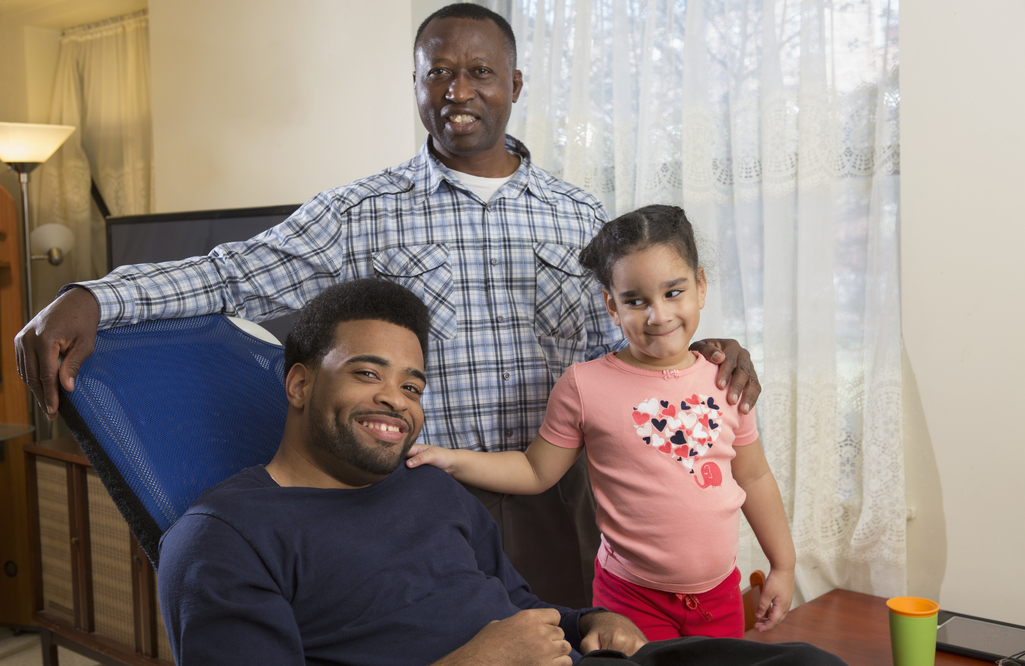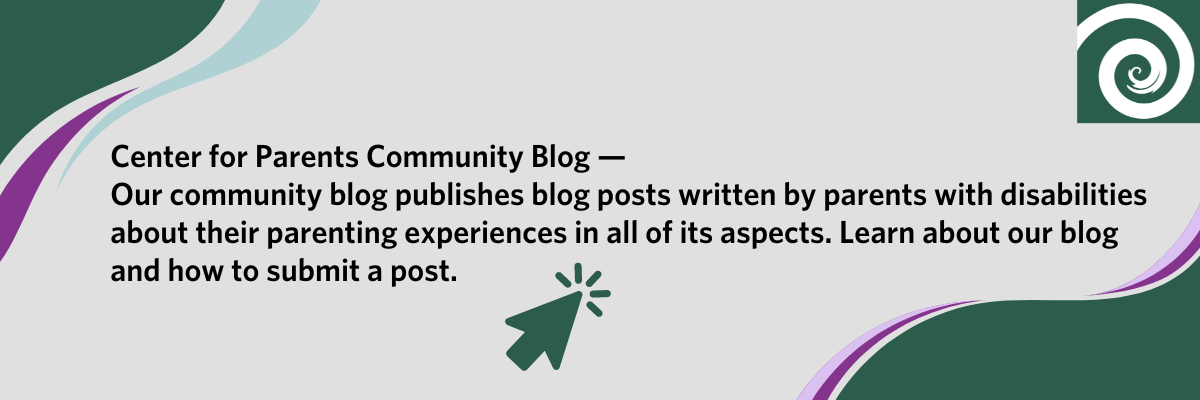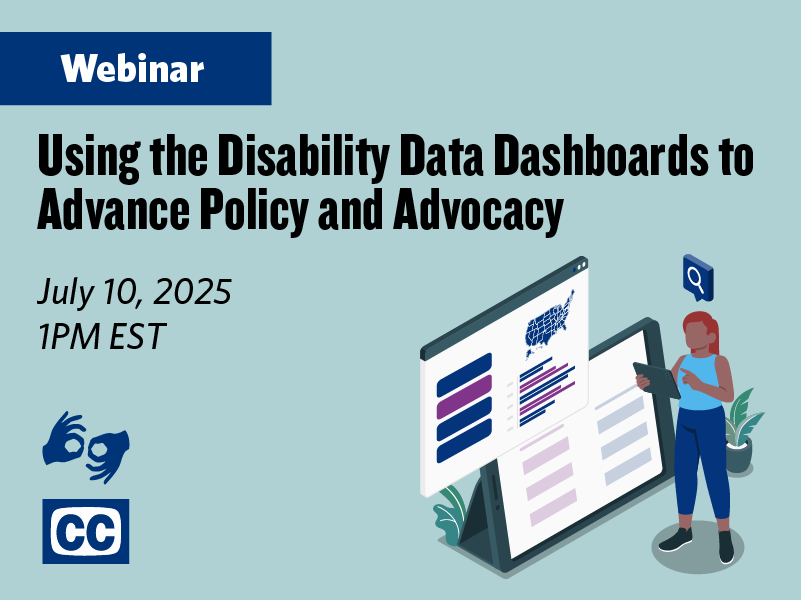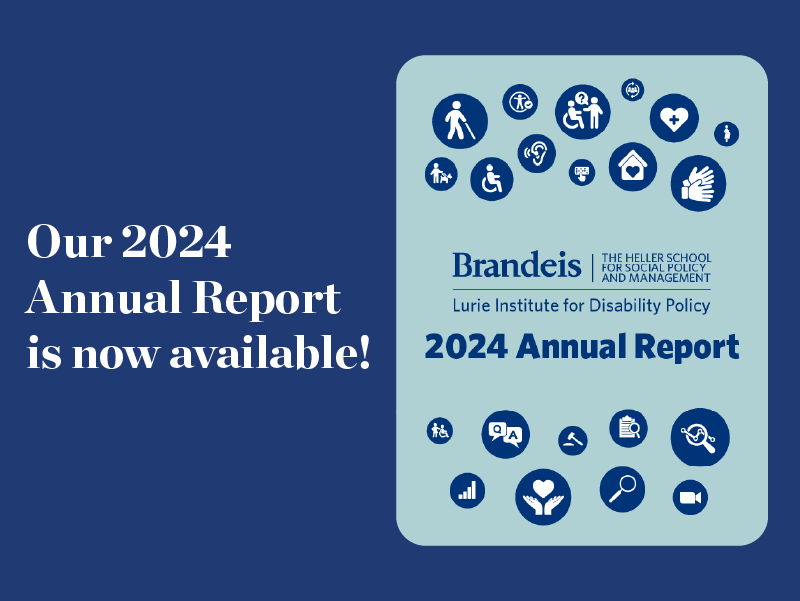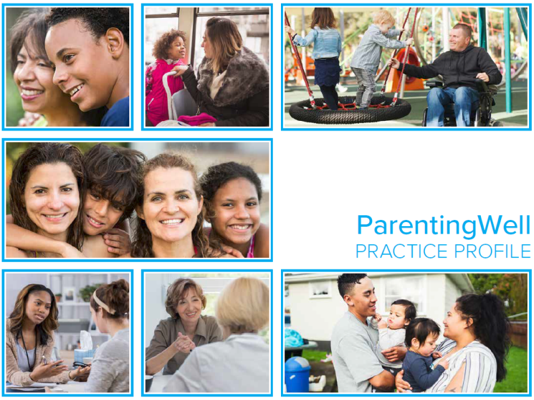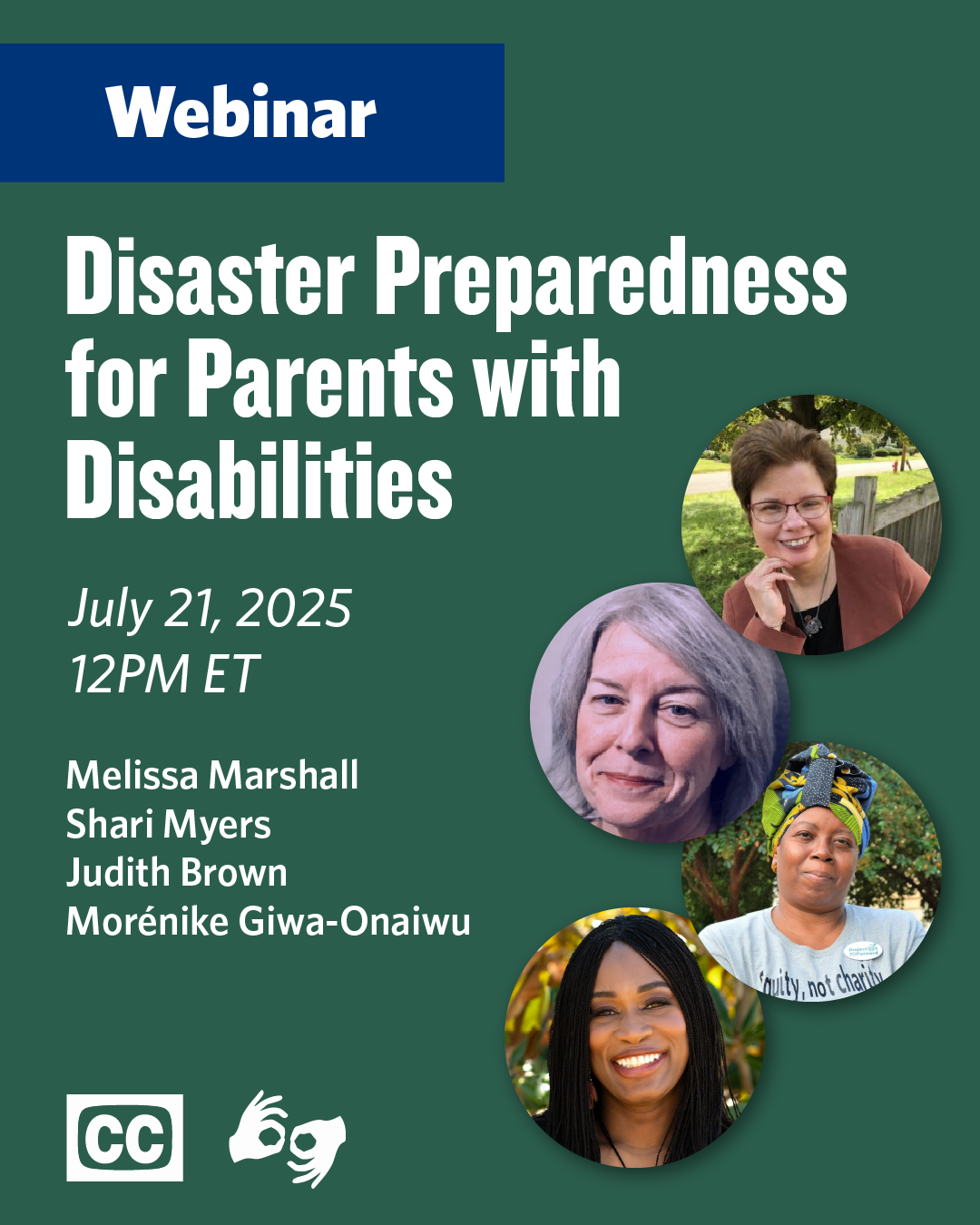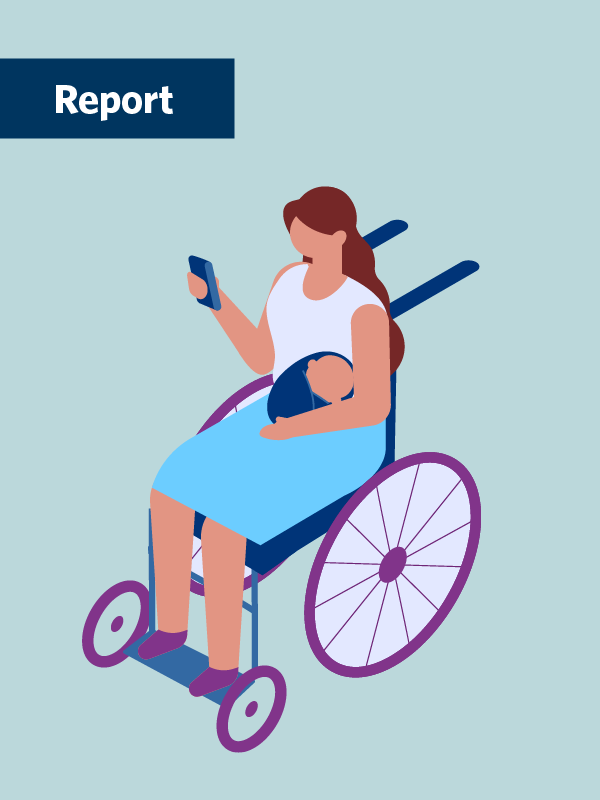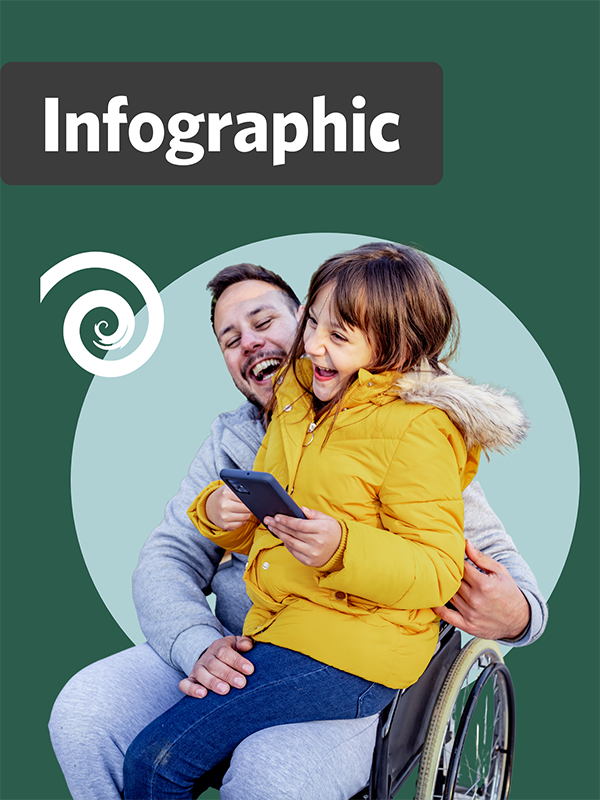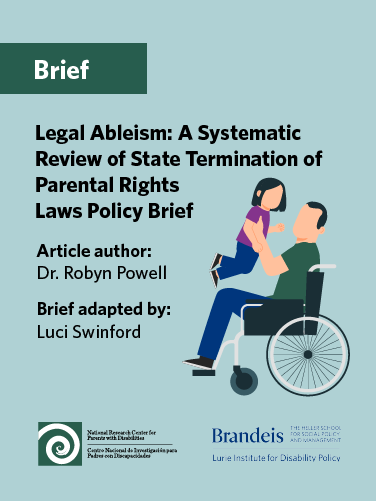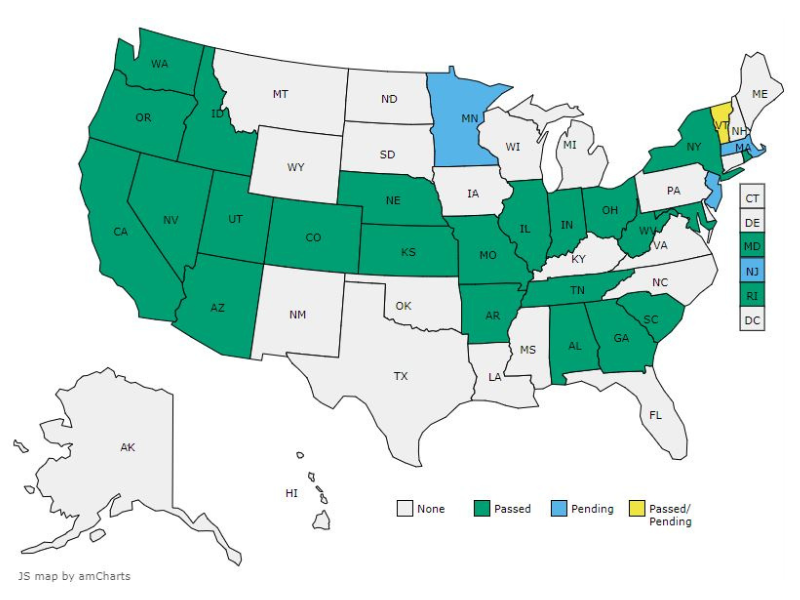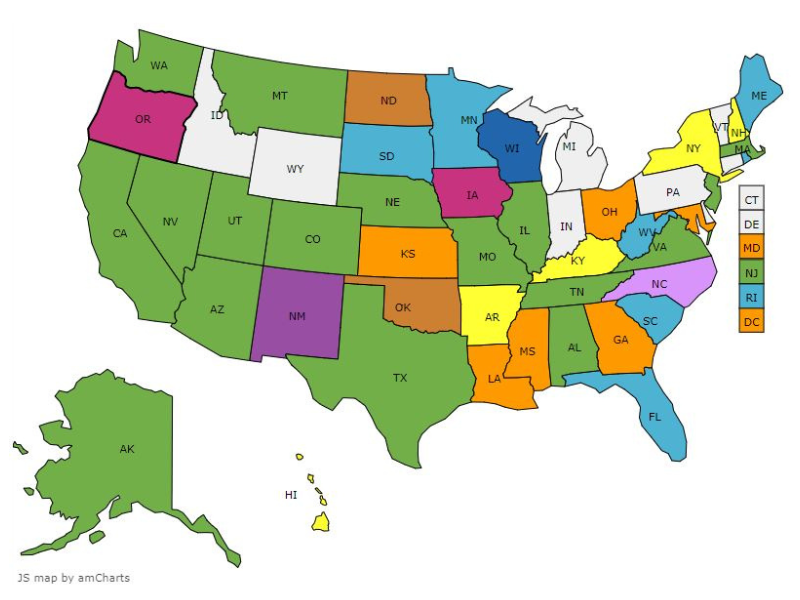
Welcome to the Center for Parents
The National Research Center for Parents with Disabilities conducts research and provides training and technical assistance to improve the lives of parents with disabilities and their families. We share our findings here on this website. We also offer information sheets, research briefs, and other resources.
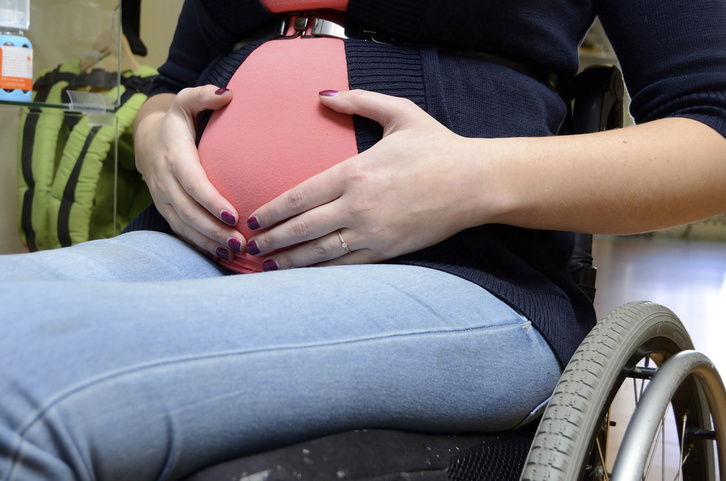
Our resources are for parents with disabilities, legal professionals, social workers, and researchers, and cover a variety of topics, including child-welfare law and its effects on parents with disabilities, firsthand narratives from disabled parents about how they raise their children, and advice for professionals working with specific populations of parents with disabilities.
 Parents with Disabilities Data Dashboard
Parents with Disabilities Data Dashboard
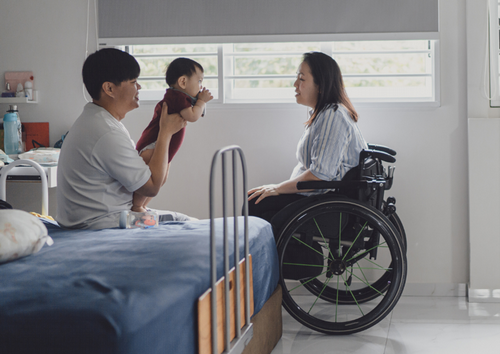 About 7% of parents have a disability in the U.S., yet the rights of disabled parents are continually challenged. The National Research Center for Parents with Disabilities’ Data Dashboard offers much-needed comprehensive information about who disabled parents are and what their parental rights are in each U.S. state.
About 7% of parents have a disability in the U.S., yet the rights of disabled parents are continually challenged. The National Research Center for Parents with Disabilities’ Data Dashboard offers much-needed comprehensive information about who disabled parents are and what their parental rights are in each U.S. state.
Access the Parents with Disabilities Data Dashboard


What's Happening at the Center for Parents
Using the Disability Data Dashboards to Advance Policy and Advocacy
The Lurie Institute’s Disability Data Dashboards offer crucial information in easy-to-understand and accessible ways. The dashboards can serve as helpful, efficient, and time-saving tools for disability policy advocates across the United States. In this webinar, we discussed our two dashboards, the Parents with Disabilities Dashboard and the Community Living Dashboard, live demo-ing how they work, what information they show, and what the metrics mean.
Recording Coming Soon: Using the Disability Data Dashboards to Advance Policy & Advocacy
Annual Report
The National Research Center for Parents with Disabilities is excited to share our annual report from this last year. The report highlights key research findings, our many dissemination products and resources, community outreach efforts, and much more from 2024.
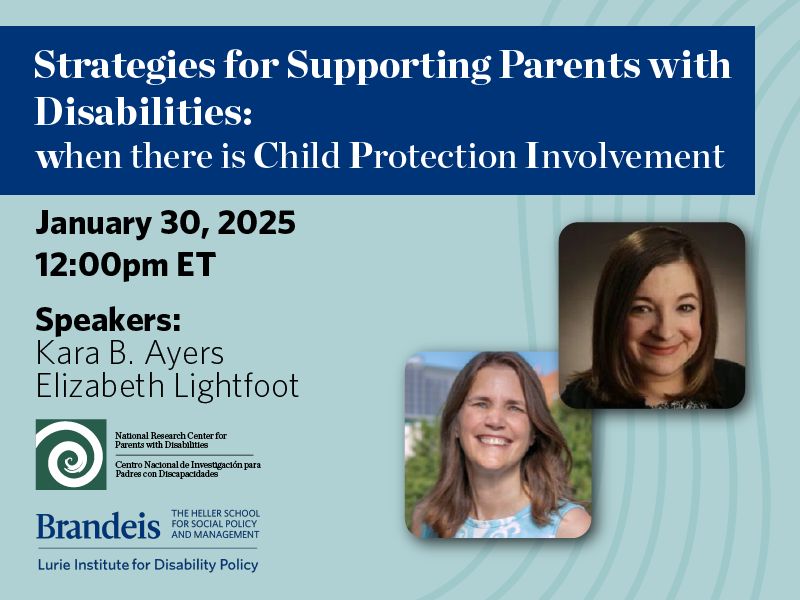 Strategies for Supporting Parents with Disabilities: when there is Child Protection Involvement
Strategies for Supporting Parents with Disabilities: when there is Child Protection Involvement
The webinar provides an overview of ableism and discrimination within child protection and provide parents with strategies for addressing these injustices. Presenters are Dr. Elizabeth Lightfoot, Distinguished Professor of Social Policy and Director of the Arizona State University School of Social Work, and Dr. Kara Ayers, Associate Professor at Cincinnati Children's Hospital. ASL and captioning were provided.

ParentingWell Learning Collaborative
Massachusetts Behavioral Health Providers are participating in the ParentingWell Learning Collaborative
ParentingWell® is an approach to routine practice that makes talking about parenting, children, and family experiences a natural part of the conversation and of an adult’s recovery process.

Go to: Upcoming Webinars | Past Webinars

Our Map Resources
Current U.S. State Legislation Supporting Parents with Disabilities
Despite notable achievements in other areas of disability rights, parents with disabilities continue to encounter significant discrimination. Parents with disabilities are more likely to have their children removed by the child welfare system as well as have their parental rights terminated. Moreover, within the family law system, disabled parents are less likely to gain access to custody or visitation of their children. Finally, prospective parents with disabilities encounter barriers to adopting children or becoming foster parents. While there are many reasons for the pervasive discrimination, it is notable that the child welfare, family law, and adoption systems are largely driven by state statutes.
Go to Interactive Map | Go to Legal Background | Go to Summary of State Legislation

Current U.S. State Laws Terminating Parental Rights on a Basis Including a Parent's Disability
Current laws in many U.S. states include parental disability as grounds for the termination of parental rights. While some states have no laws allowing for parental disabilities as such to be grounds for terminating parental rights, most states have laws permitting this. Our map represents the nine combinations of disabilities that states now allow as grounds for terminating parental rights based on a parent's disability.


Website Feedback
We Want to Hear from You!
We value your input and strive to make this website work well for everyone. Please take our very brief survey to give us your website feedback!

